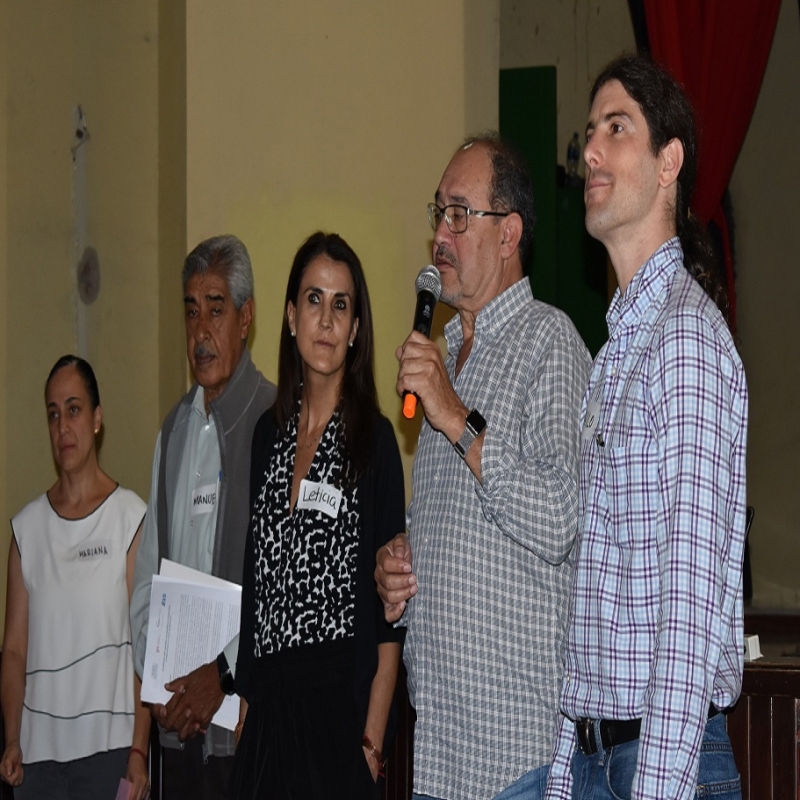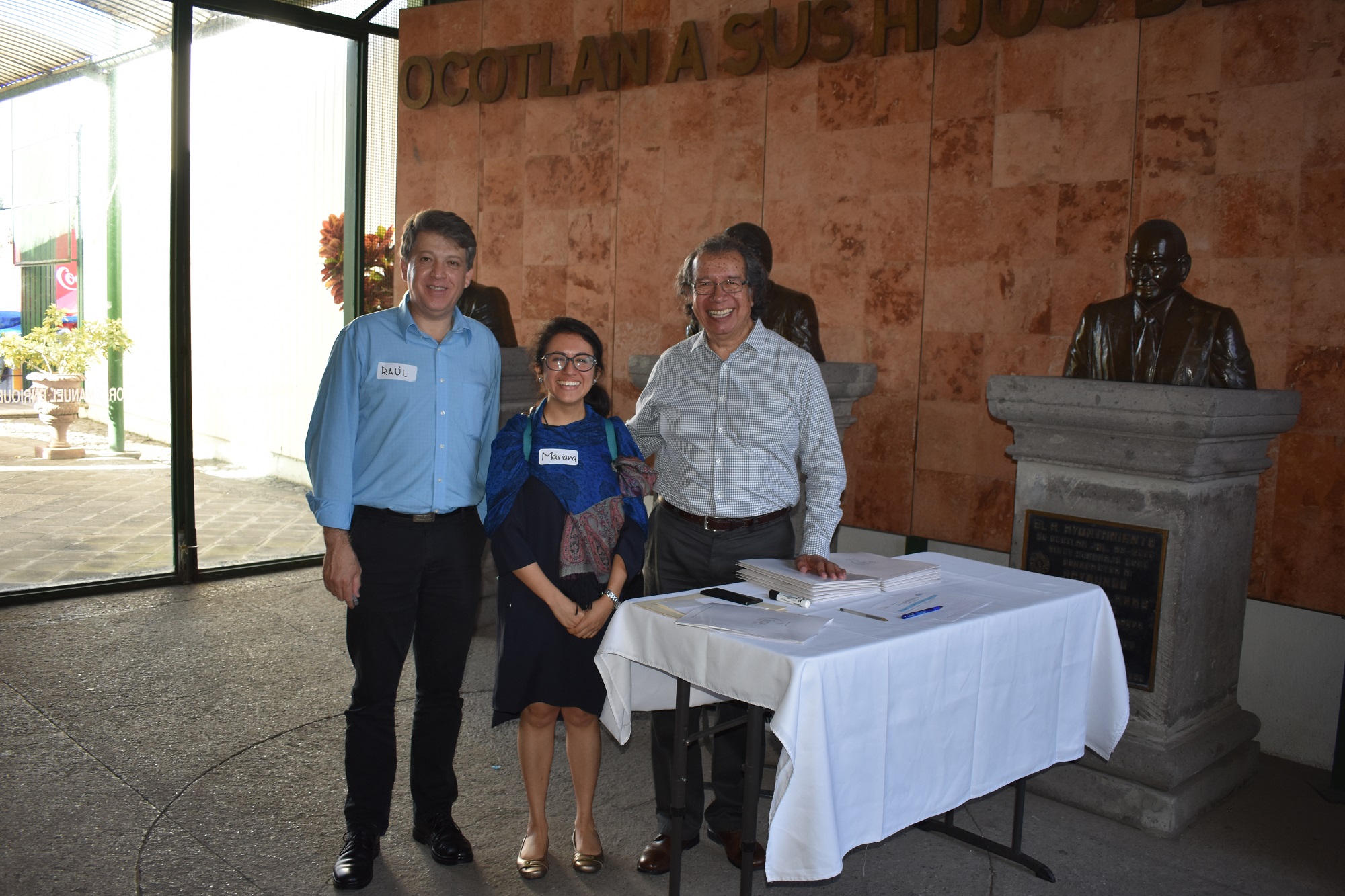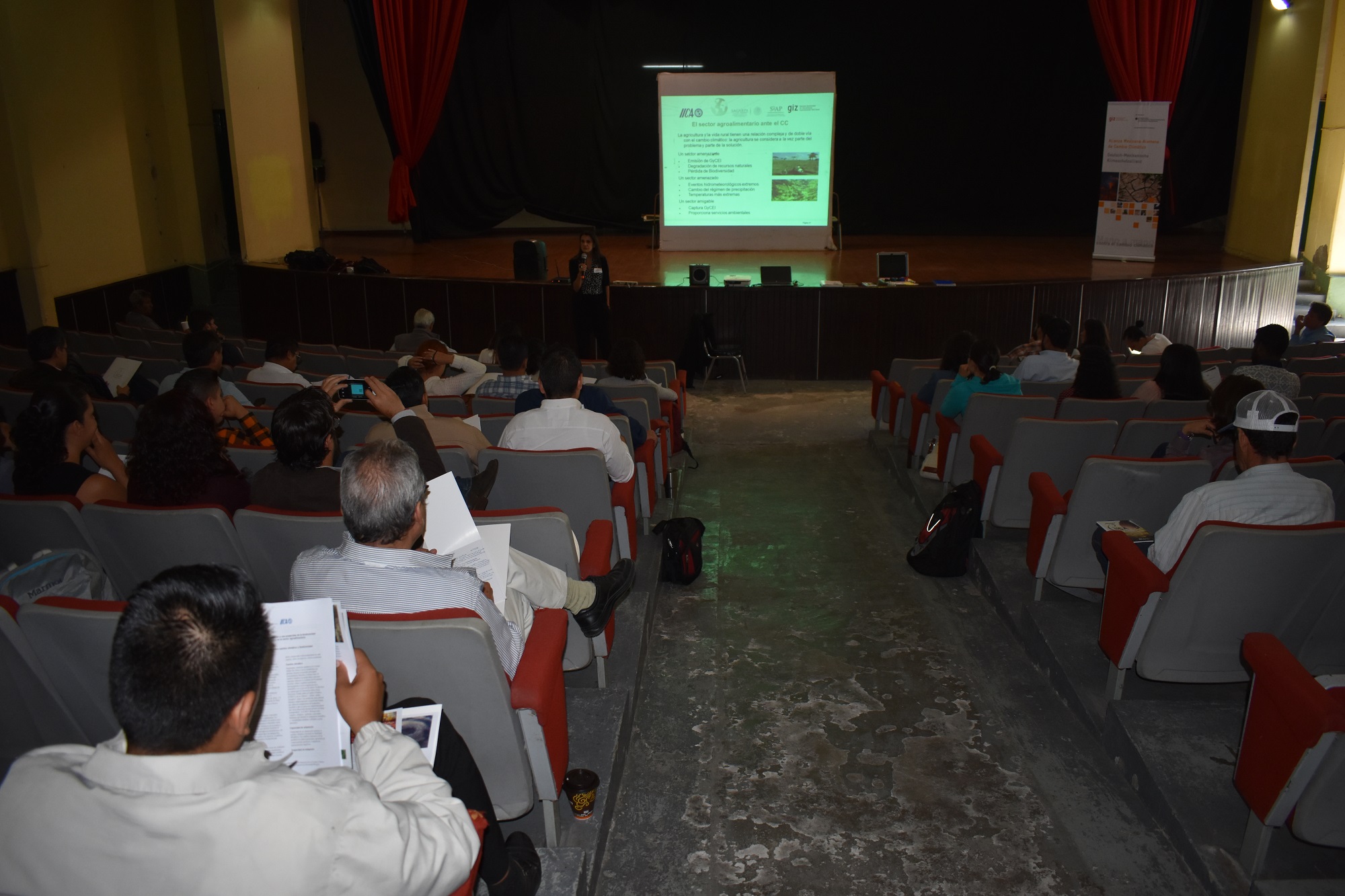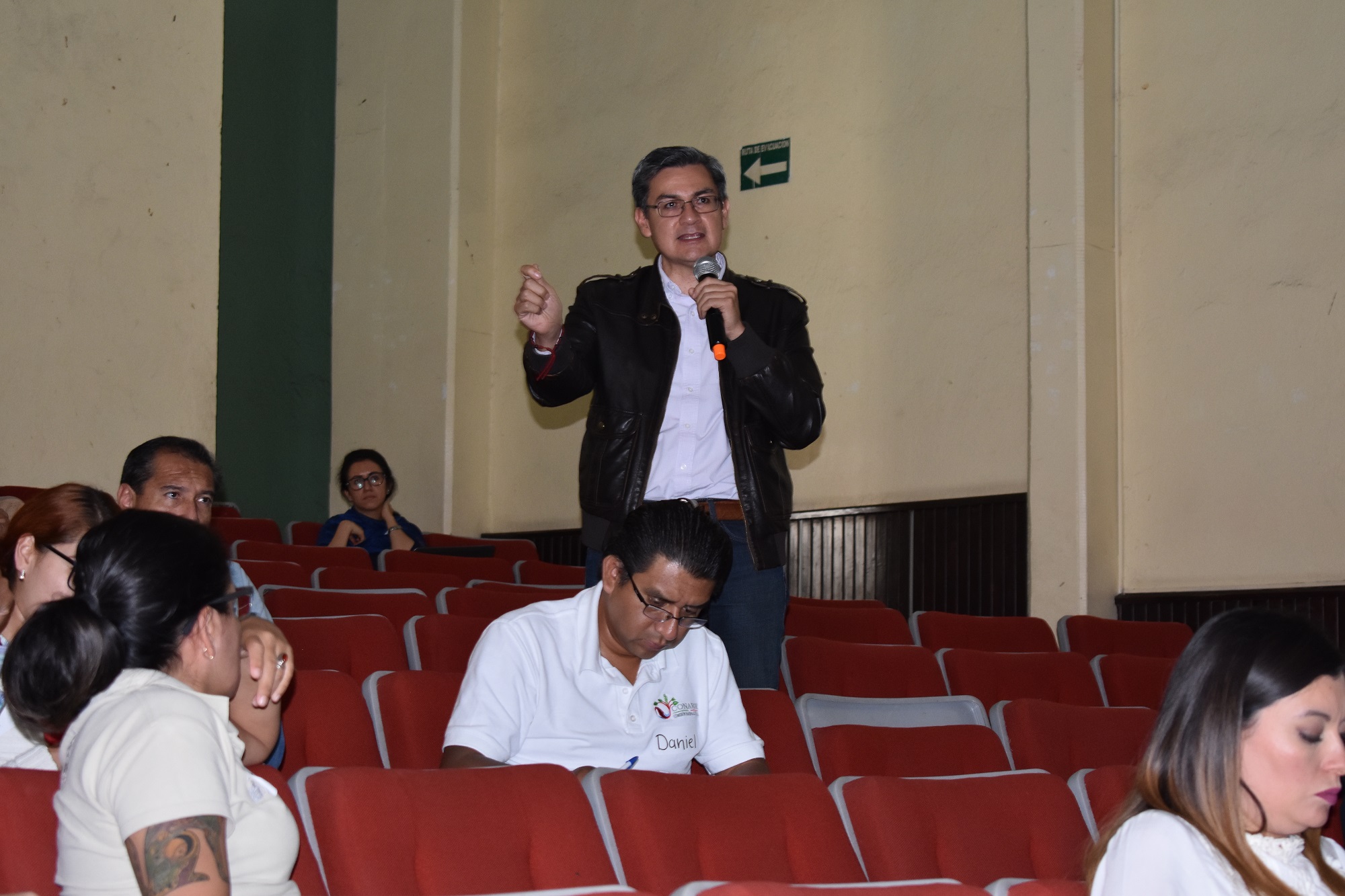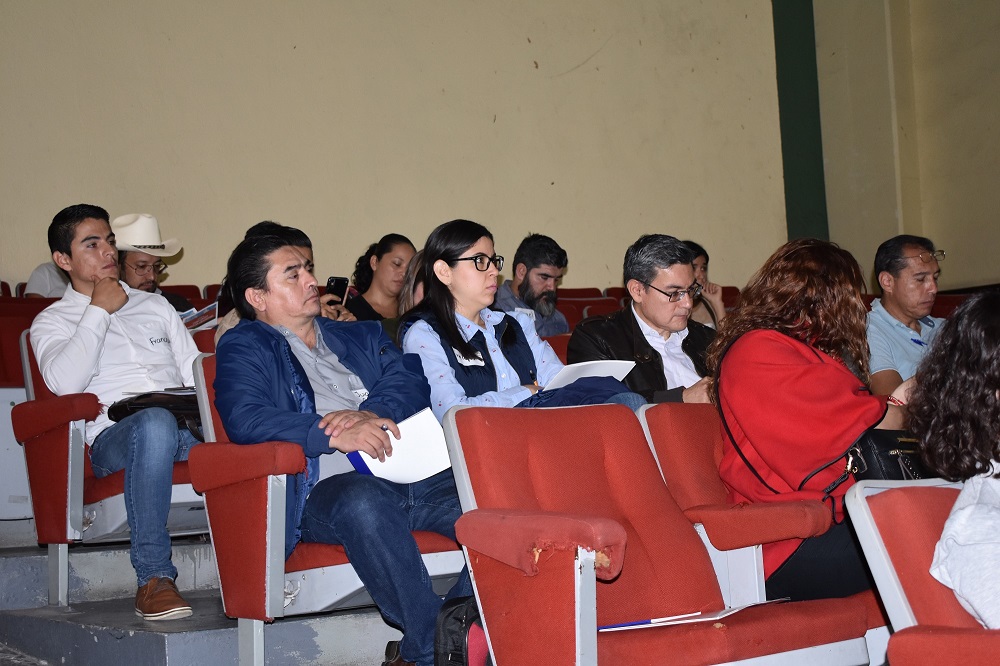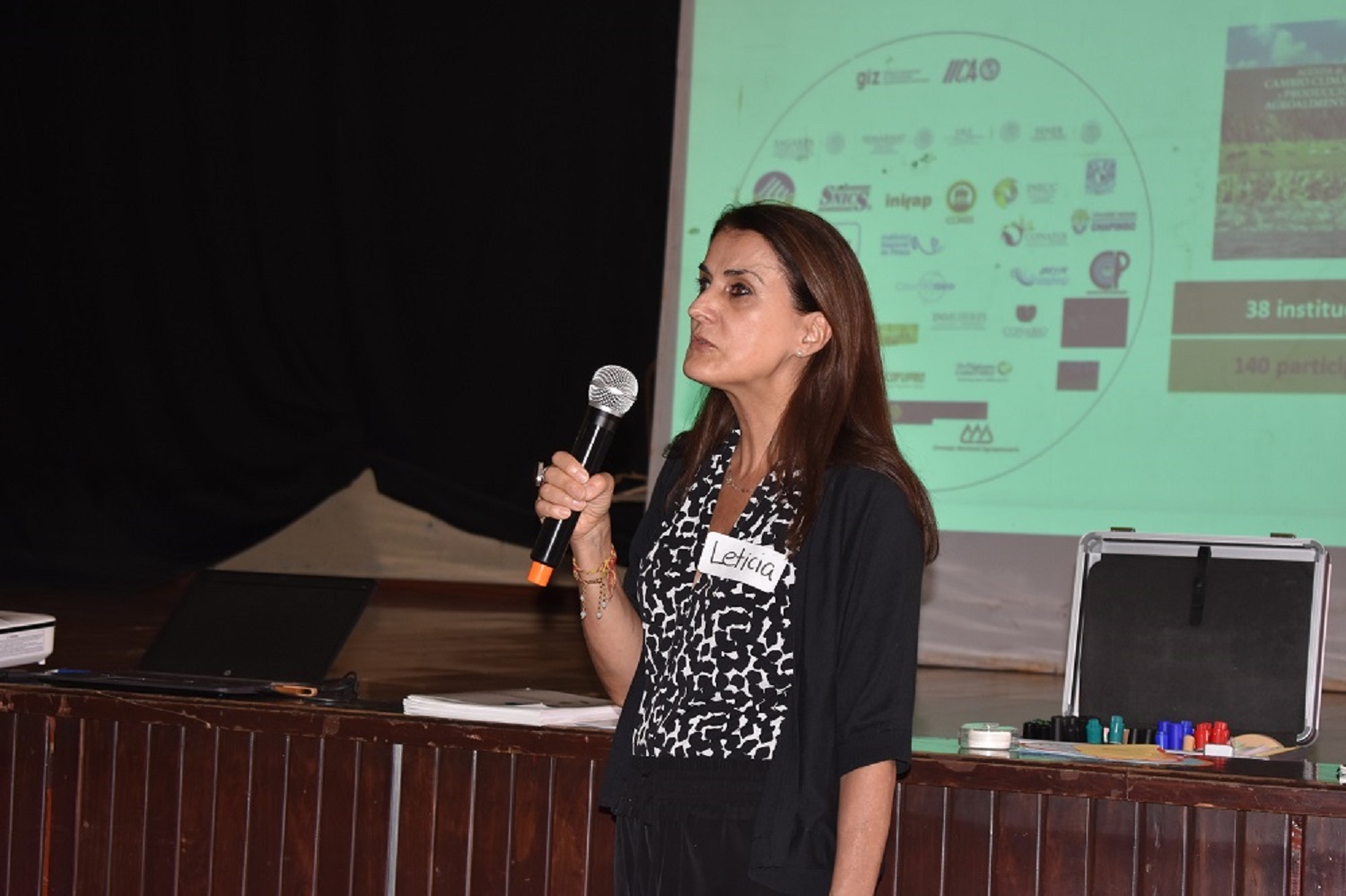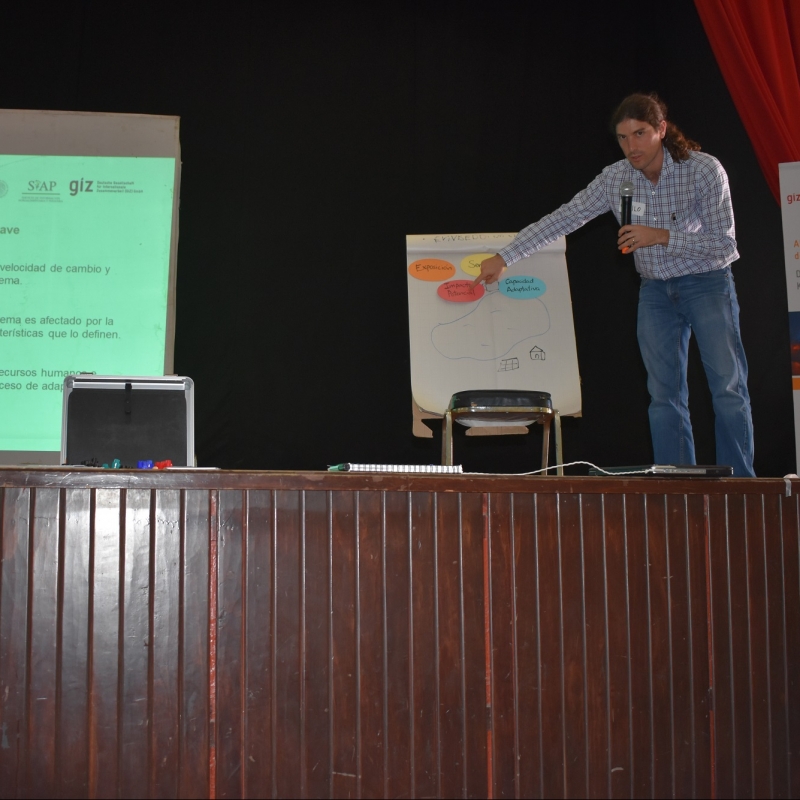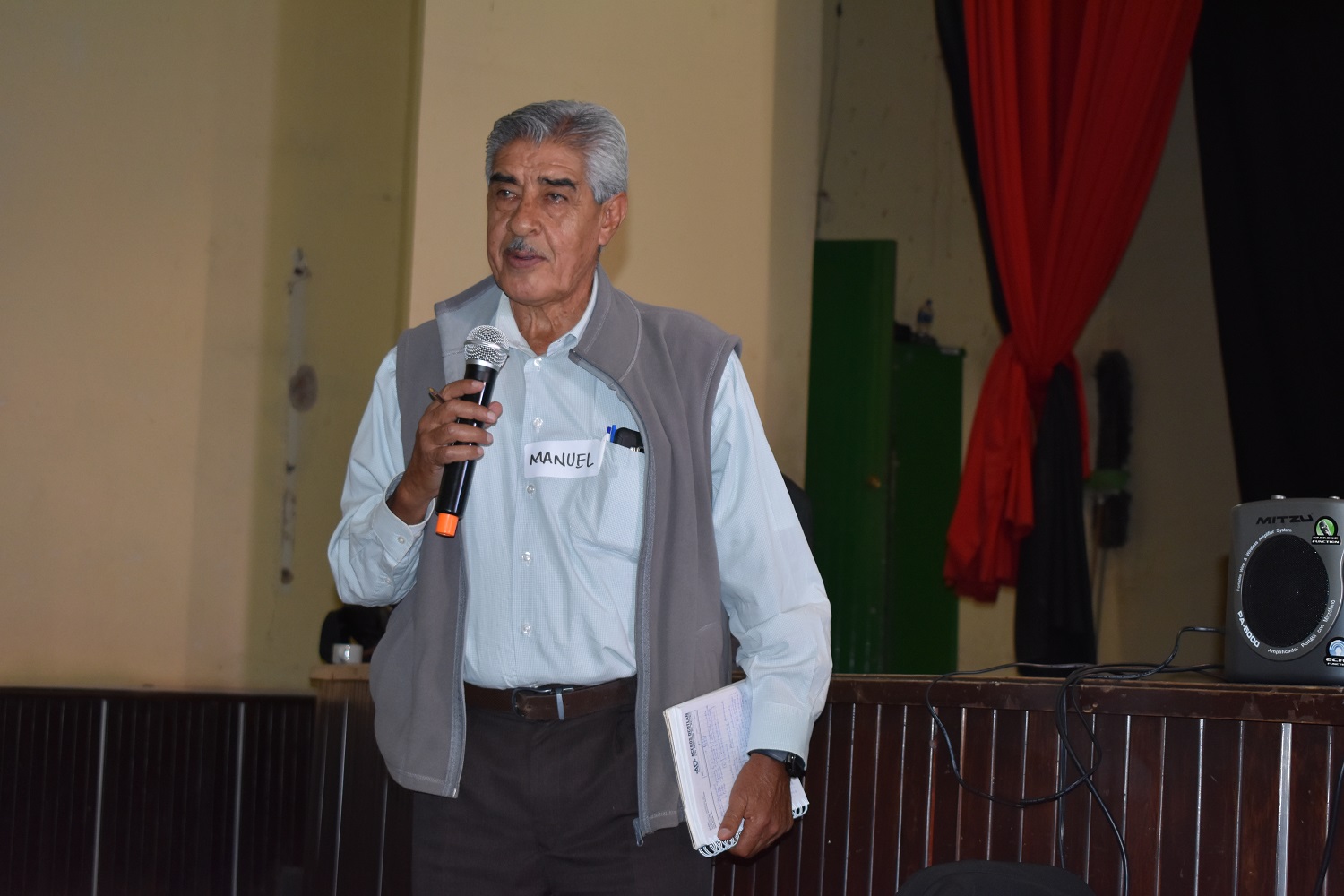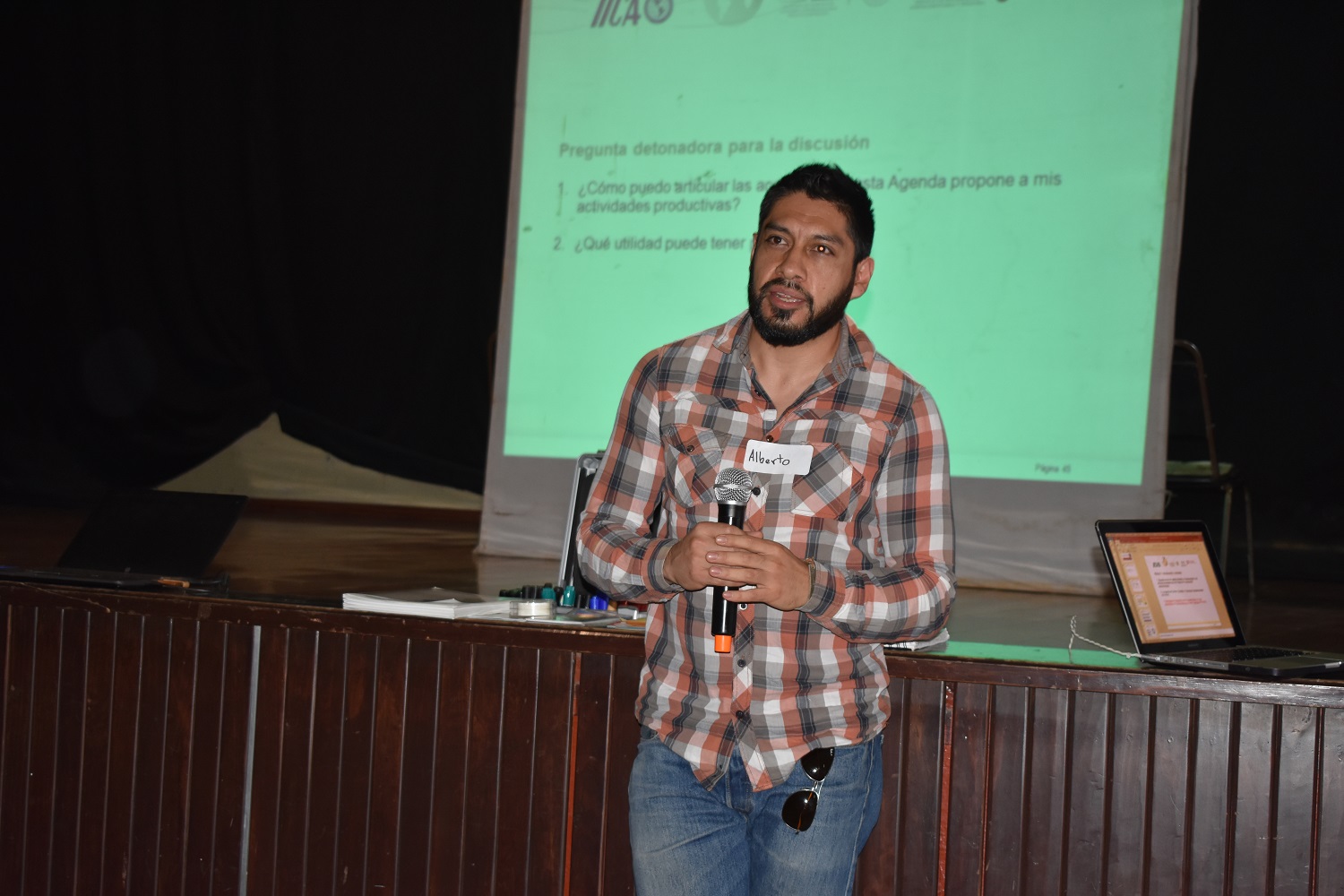It is important to develop the capacities of the actors that play a fundamental role in productive systems and in actions to reduce vulnerability, mitigate emissions and increase the adaptation capacity of agri-food production to climate change.
The goal of the workshop “Raising Awareness about the Valuation and Sustainable Use of Biodiversity and Climate Change in the Agri-food Sector” was to provide participants with basic knowledge and tools on approaches to conservation and the sustainable use of biodiversity, Ecosystem-based Adaptation (EbA), the mitigation of greenhouse gas emissions, value chains and the valuation of ecosystem services in the agri-food sector.
Organized by the Deutsche Gesellschaft für Internationale Zusammenarbeit (GIZ) GmbH and the Inter-American Institute for Cooperation on Agriculture (IICA), the workshop was held in coordination with the Rural Development Support Center (CADER) of Ocotlán, Jalisco, on October 4 and 5 in the auditorium of Ocatlán’s Casa de Cultura on the bank of Lake Chapala.
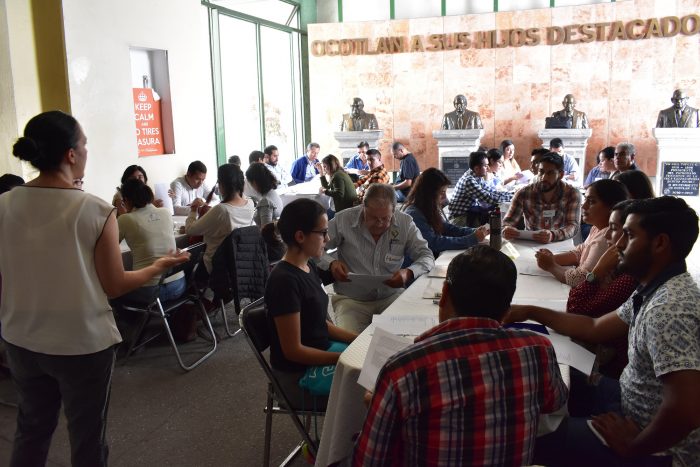
Attended by 53 individuals, the workshop participants included rural producers, representatives from the Ocotlán municipal government and technical personnel from CADER Ocotlán, the Jalisco Delegation of the Ministry of Agriculture, Livestock, Rural Development, Fisheries and Food (SAGARPA), the Ministry of Rural Development (SEDER) of Jalisco, the National Forestry Commission (CONAFOR), the National Institute for the Development of Rural Capacities, A.C. (INCA Rural), the Agri-Food and Fisheries Information Service (SIAP), the Intermunicipal Association for the Protection of the Environment and Sustainable Development of Lake Chapala (AIPROMADES Lago de Chapala), the Jalisco Produce Foundation, the Institutional Trusts in Relation to Agriculture (FIRA), the Agency for Services toward the Commercialization and Development of Agricultural Markets (ASERCA), as well as consultants, and students studying agrobiotechnology at the University of Guadalajara.
Among the topics addressed in the workshop’s presentations and analysis exercises were the current situation of climate change; biodiversity and ecosystem services in the context of agri-food production; the dependence on ecosystem services for food production; the vulnerability of food production subsectors to climate change effects and its impact on food security; the role of food production on the generation of greenhouse gases; and adaptation and mitigation measures in agri-food production subsectors.
The Climate Change and Agri-Food Production Agenda 2018-2030 and the Integration Strategy for the Conservation and Sustainable Use of Biodiversity in the Agricultural Sector (2016-2022) were also presented. Both are useful programmatic tools for formulating public policy and helping relevant stakeholders act collectively to resolve the climate and biodiversity problems facing the agri-food sector.
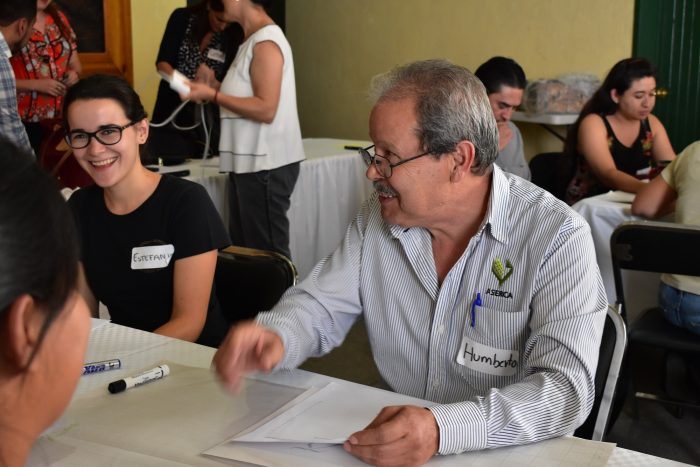
Participants expressed great interest in the workshop topics, with most of their questions and comments focused on identifying opportunities for specific collaboration efforts. The working groups made valuable contributions to value chains and vulnerability diagnoses.
They highlighted the value of this type of training that, through group exercises, allows participants to reflect and generate their own conclusions. It also helps build relationships and identify areas for collaboration.
This training will also be carried out in Michoacán, Mérida, Coahuila and Puebla.
Workshop materials:
Glossary of terms on climate change and biodiversity
Success stories:

